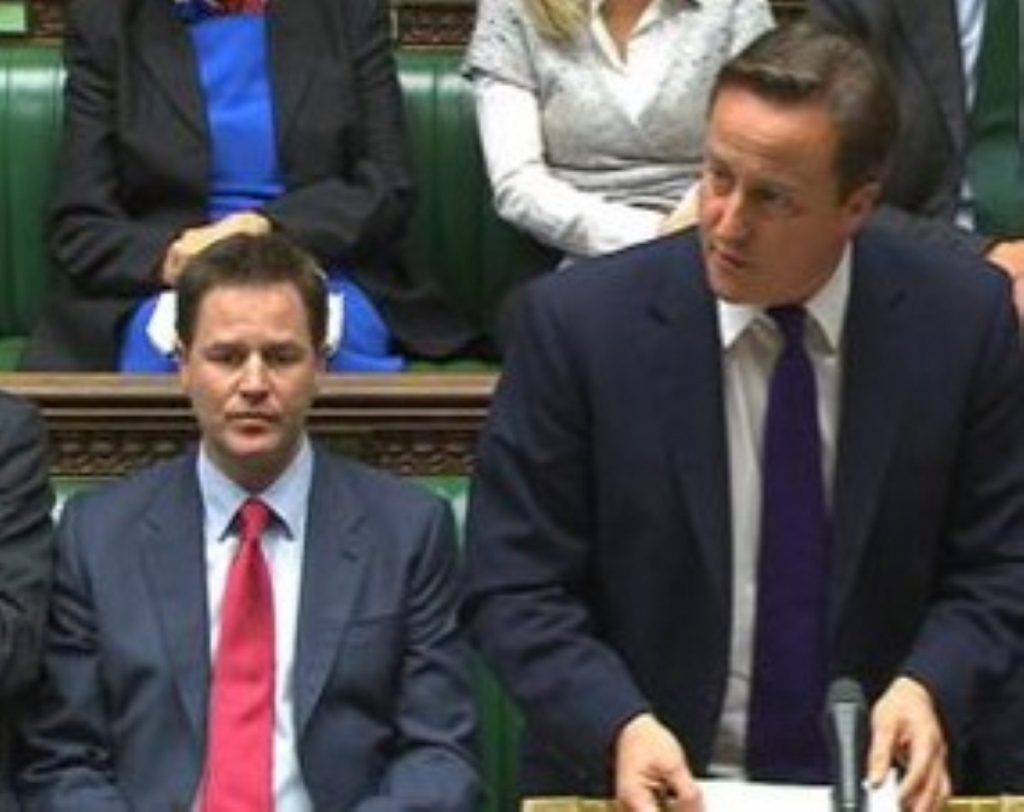Analysis: Why Lib Dems need results as well as headlines
If the Lib Dems' policy demands are simply ignored by the Tories, more voters will begin asking: what's the point of Nick Clegg?
The new political season is getting underway a week early – and it looks like the 'new politics' of coalition is now entering a new, rowdier, phase.
Nick Clegg fired the starting gun with his interview in this morning's Guardian. The deputy prime minister has got a great idea, lads: he's calling for some sort of raid on the coffers of the country's wealthiest, to make the rest of recessionary Britain feel better. This is a bold demand. It goes much further than the 'mansion tax' included in this year's Budget. It is designed to make the voters sit up and take notice of the Liberal Democrats, who are viewed in the minds of many voters as cardboard Tory sell-outs.
This was the result of overdoing it in the early stages of the coalition, when the goal was to convince the markets that this government was the real deal. Now some serious backpedalling is required – hence the new, 'bolshier' Lib Dems.


The problem is that this wealthy tax isn't likely to come into reality. Chancellor George Osborne has already slapped the idea down; the 'wealthy', in classic Tory parlance, are 'wealth creators' whose interests must be protected at all costs. As with Lords reform, if Conservative MPs really don't like something it simply won't get through. With No 11 shutting its doors to the idea, the wealthy can sleep easily in their feather beds tonight.
This makes Clegg's strategy very risky indeed. For if all his bright ideas are to be brushed aside so easily the public may form another, even more damaging view of the Lib Dems' contribution: that it is almost non-existent. This is a party whose ideas are trampled on, and which lacks any kind of ability to bite back. It demands changes in public, and then is powerless to respond when setbacks occur. Not the kind of strong, unified government Britain needs – or wants.
Public views of the coalition matter. Voters, which had been thoroughly disenchanted by the parties' failure to work together before 2010, are now utterly fed up by their inability to agree in power together. Those whose job it is to worry about these sorts of things are very clear: every headline which appears complaining of divisions between the Conservatives and Liberal Democrats will only seek to drive political disengagement downwards. It is not what the British are accustomed to – and, for the coalition's junior party, it risks being utterly counter-productive.
None of this is especially new. Vince Cable has long been a cheerleader for conducting coalition arguments in public. Others, keen to present the government as a unified operation, have preferred the behind-closed-doors approach. There are advantages to this. Dealing with policy clashes upstream, before they have drifted down into parliament and the media bearpit, has been viewed as the best way of saving both parties' reputations. It's a common belief that many of the most public rows which did emerge in the coalition's first two years were stage-managed.
As the parties' interest in conflict begins to diverge – the Lib Dems, doing badly in the polls, will want more and the Tories less – so the stage-managed element begins to decline. The Lib Dems will always have the option of mouthing off in newspaper interviews, desperately seeking to draw attention to their values. But if these demands do not result in any substantial shift, their currency becomes downgraded. Their values lose their value. The Lib Dems lose their point.
If that happens, the voters will respond accordingly.

